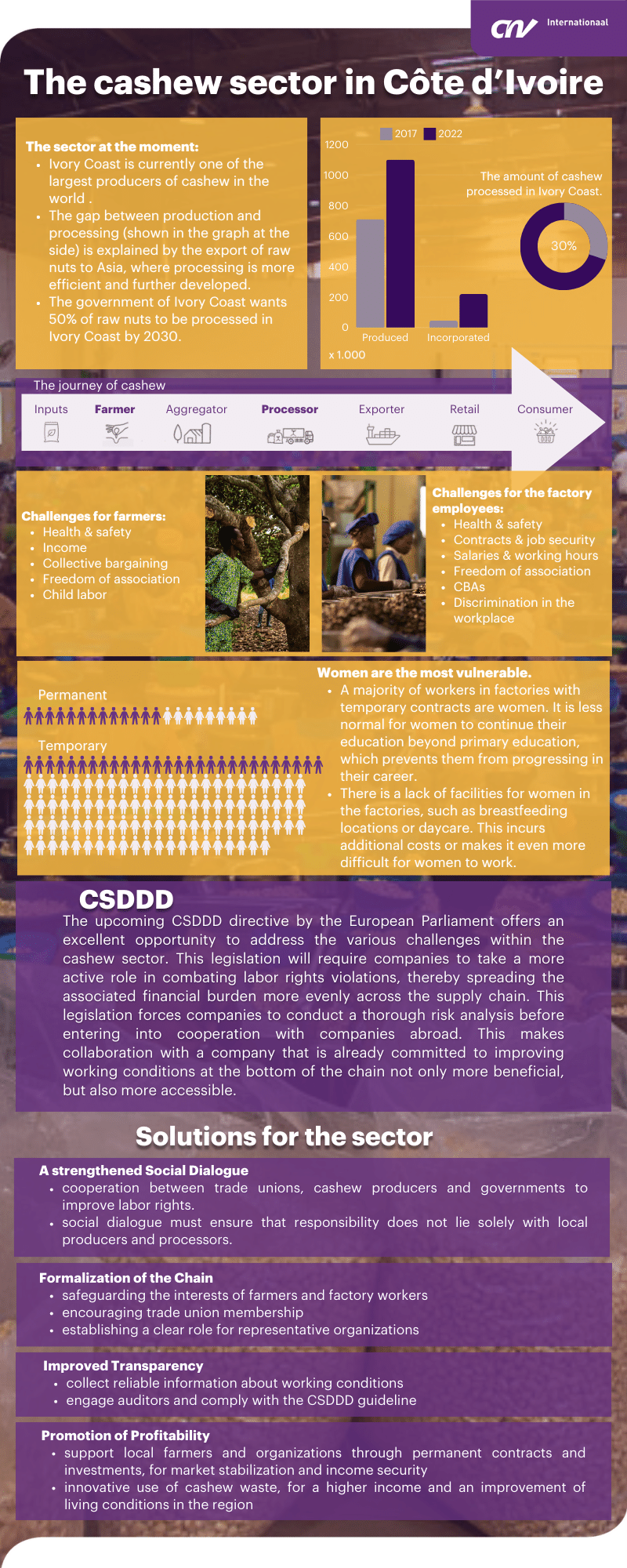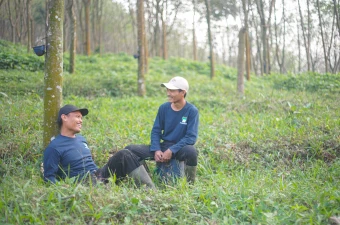Challenges and solutions to improve the working conditions.
The cashew sector in Côte d'Ivoire, one of the world's largest producers, is facing urgent challenges that require attention. The rapid growth of the cashew market in Côte d'Ivoire (West-Africa) has led to a worrying pattern of informal employment and unstable incomes for farmers and factory workers. Farmers are paid based on production, leading to financial insecurity and inadequate income. On the other hand, workers in processing factories are usually hired by subcontractors, making them vulnerable to dismissal without the protection of labour laws.
To address these problems in the cashew sector, there are several possible solutions:
- Stronger social dialogue: Trade unions, cashew nut producers and governments need to come together to make a joint effort to improve workers' conditions. This social dialogue will ensure that local producers and cashew processors do not bear sole responsibility for working conditions through certifications and standards. The position of the workers in the processing factories should also be represented in this social dialogue, which is not the case at the moment.
- Improving transparency on working conditions: The sector urgently needs more transparency to gather reliable information on working conditions. By promoting internal dialogue with workers and transparency from producers, we can work towards improvements.
- Better formalisation of the chain: This includes promoting trade union membership, protecting the interests of farmers and factory workers, and establishing a clear role for the organisations that represent them.
- Promoting profitability: To ensure market stability, local farmers and their organisation need to be supported through permanent contracts and investment. This will not only increase their income security, but also improve the living conditions of the entire region through the innovative use of cashew waste.
Opportunities through CSDDD
The EU's forthcoming CSDDD legislation provides a crucial opportunity to address these issues. It will encourage companies to take responsibility for working conditions throughout the supply chain. It is essential that organisations, governments and other stakeholders work together to address these challenges and ensure a sustainable future for the cashew sector in Côte d'Ivoire.
Thanks in part to funding from the Dutch Ministry of Foreign Affairs for the Combination countries, including Côte d'Ivoire, CNV Internationaal is able to contribute to the above improvements and to international responsible business practices in the cashew sector.
Conclusions and recommendations from the cashew research
All actors in the supply chain are needed to reduce and prevent labour rights abuses. The costs of reducing and preventing labour rights abuses need to be factored into the entire supply chain, and the market should become 'preferential' to those who make improvements.
Fortunately, many actors are already working on this, so there are potential partnerships to be found. It is important to maintain a broad focus, as social sustainability is not an isolated issue, but part of the wider sustainability challenge, which includes an environmental and economic perspective. Overall, the sector is moving forward and seizing opportunities to comply with (forthcoming) EU regulations.
Infographic

Downloads
The full report of the investigation by Fair Match Support is available in
Publication date 17 04 2024



